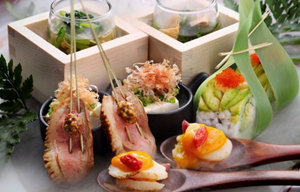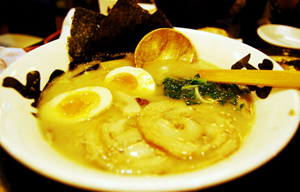Chinese poultry industry struggles to survive H7N9
Updated: 2013-04-23 10:05
(English.news.cn)
|
|||||||||||
GOVERNMENT SUPPORT CRUCIAL
Poultry breeding has been a major sideline and income source for Chinese farmers for centuries. The sluggish demand for these products has led large poultry enterprises to face the risk of capital chain rupture and the much smaller individual raisers to struggle to make ends meet.
"If the market does not recover within a month, the 400,000 ducklings in Longhai city will have to be killed," said Lin Shundong, director of the Longhai Duck Breeding Association.
Lin called for the government to immediately start purchasing poultry products from the non-affected provinces at the price they commanded pre-H7N9, a move that would not only boost market confidence at present, but also stabilize the market in case of a supply shortage when demand revives.
The government should also encourage poultry processing enterprises to purchase, slaughter the poultry, freeze the meat and sell it when conditions recover, Lin urged.
For poultry breeding companies and farmers in the affected areas, the government should subsidize their business, suggested Li Guoxiang, a researcher with the rural development institute under the Chinese Academy of Social Sciences.
"China should set up a systematic rescue mechanism," Li said. "Subsidies and rural insurance could be integrated to tackle the crisis."
So far, the governments of Shanghai and Zhejiang have released policies to support the poultry industry.
Under Shanghai's subsidy standard announced on April 10, poultry farms can get 15 yuan (2.4 U.S. dollars) for each bird they have kept in stock between April 1 and 30. Individual farmers can get 3 yuan for egg-laying hens.
The Shanghai municipal government is also purchasing chickens from farmers at a set price to help them offset losses, and paying back poultry merchants for slaughtering their stocks with no less than 50 percent of the birds' market prices.
The Zhejiang provincial government issued a similar policy on April 16, giving subsidies to affected farmers, breeding farms and processing firms.
The government should also be highly alert to the risks behind massive culling of poultry, said Xiao Zhiyuan in Guangdong, advising that it make efforts to guarantee the safe disposal of culled poultry in special disposal pools to prevent any contagion.
To avoid a retaliatory price rebound in the future, the government should also give technological guidance to poultry raisers to protect their production capabilities, added Li Guoxiang.
Related Stories
Party poultry 2011-01-24 09:33
Fine food championships begin in Sydney 2013-04-22 13:57
Food standards to be clarified, unified 2013-04-17 17:23
China to speed up food-tracking system construction 2013-04-17 16:35
Bottled water scandal highlights food safety challenges 2013-04-17 11:02
Today's Top News
Net forex purchases for fourth month
No new stimulus needed: Experts
Chinese president appoints 5 new ambassadors
No H7N9 transmission between humans: WHO
Health new priority for quake zone
China, ROK criticize visits to shrine
Sino-US shared interests emphasized
Entrepreneurs see potential in market
Hot Topics
Lunar probe , China growth forecasts, Emission rules get tougher, China seen through 'colored lens', International board,
Editor's Picks

|

|

|

|

|

|







